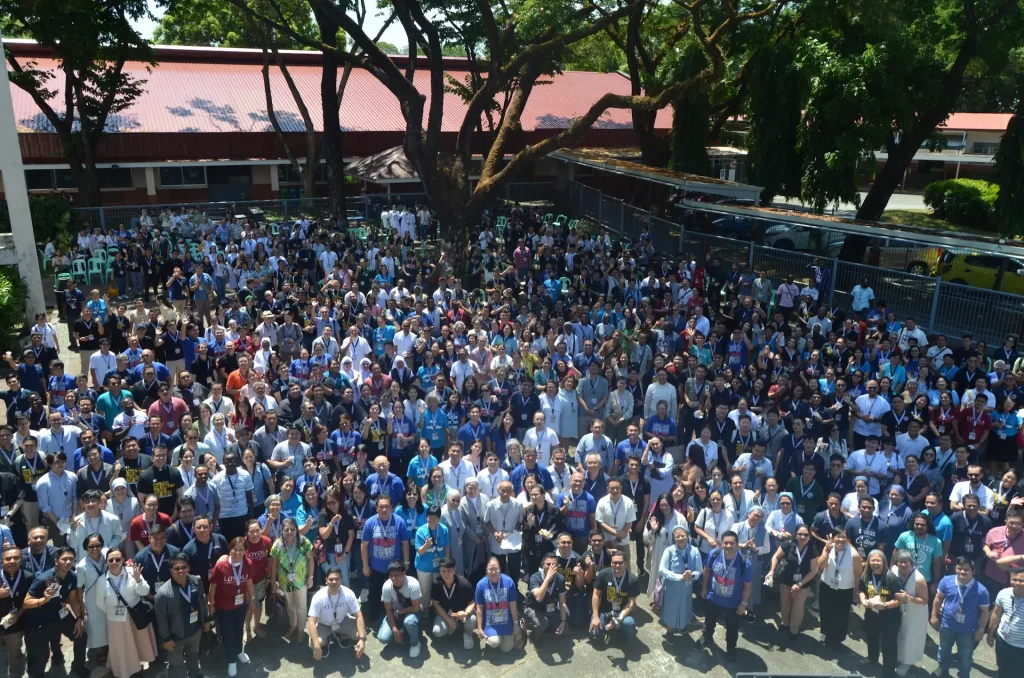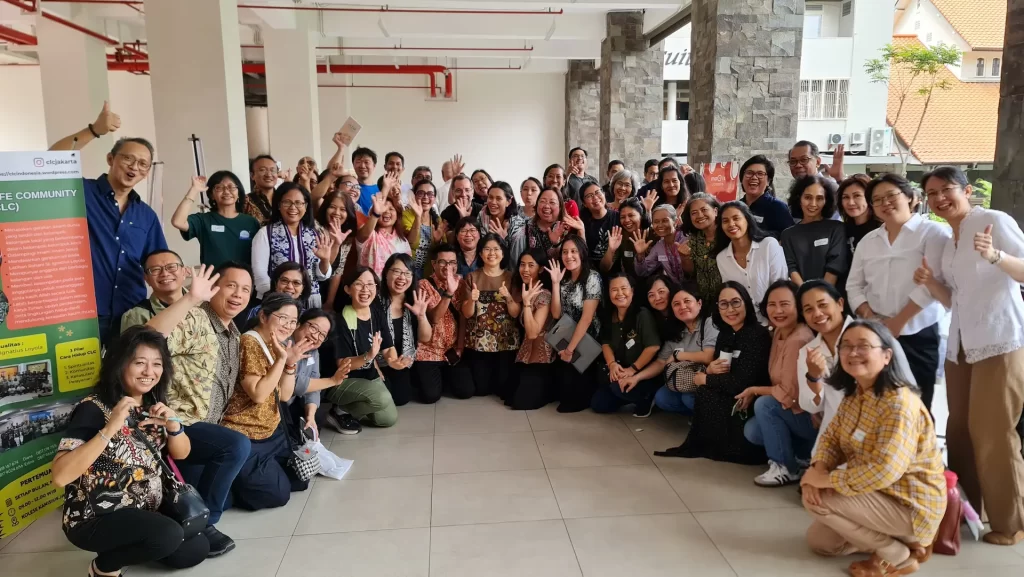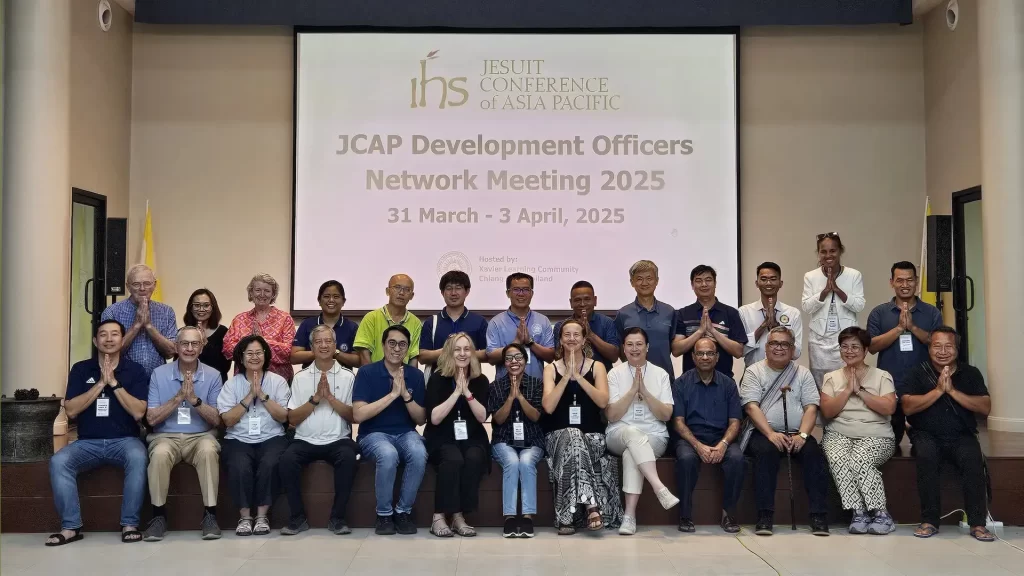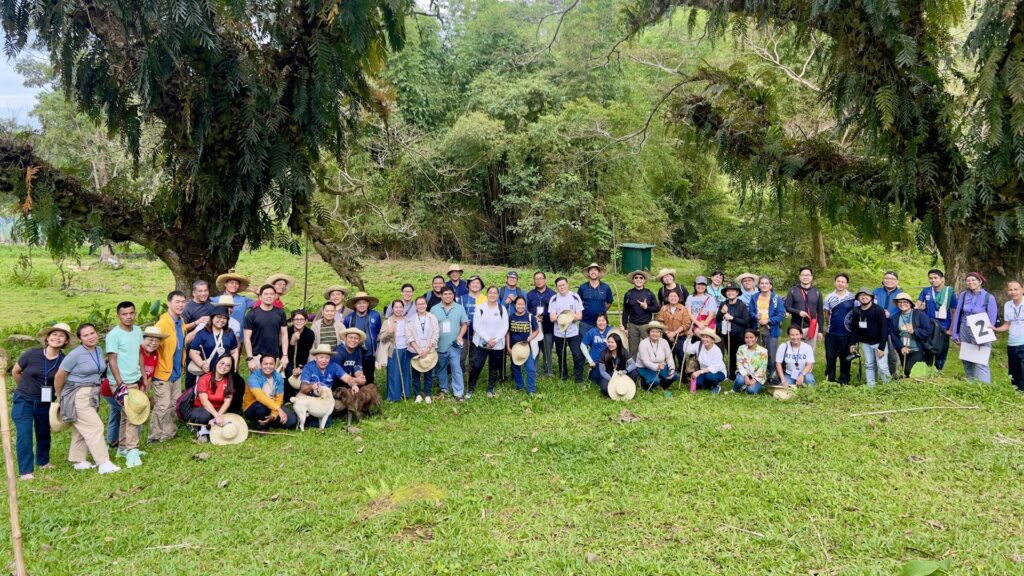We continue the series of reflections by Jesuit formands on the six interrelated dynamics described in “A Profile of a Formed Jesuit for Asia Pacific” as having the potential to form a Jesuit as a contemplative in action. Fr Jody Magtoto SJ of the Philippine Province wrote this reflection on the dynamic of universal perspective shortly before he was ordained on April 14.
My first experience of the universal Society was early on in the novitiate. Among the members of my first Jesuit community were the Jesuits from the Chinese province. The Chinese province had decided then to have their early formation in Manila, Philippines. The novices—Chinese or Filipino—followed the same structure, the same daily chores, shared the same Sunday ministry.
As one community, we learned each other’s stories. It was certainly edifying to hear how these men, early on in their formation, were able to leave the familiarity and comfort of their homeland in order to pursue a calling, to embrace their vocation. They, too, learned how the Philippines is predominantly Catholic, and how we Filipino novices eventually responded to the call to become Jesuits amidst the various possibilities of vocations.
The Chinese novices were no longer strangers to us; some would even spend Christmas with our family, learning Filipino customs. Eventually, some Filipino novices would begin learning Mandarin—even the skill to pick up which part of China the speaker was from depending on how the speaker spoke Mandarin.
After profession, some of them continued their formation elsewhere, doing further studies and ministry. Many years later in a Scholastics and Brothers Circle Conference in Chiang Mai, we had an opportunity to reconnect and it became a sort of reunion.
I realized having known each other in the novitiate was such a blessing, for it became much easier to feel comfortable around each other, and hence, do the tasks expected of us much more quickly and efficiently. We had a shared history—in taking the Exercises together, we had a shared, yet personal experience of the Lord who has called us friends.
“We Jesuits are frequently surprised that, despite our differences in culture and context, we find ourselves remarkably united. Through prayerful discernment, open discussion, and spiritual conversations, we have again and again been privileged to know ourselves as one in the Lord.” (GC 35 Decree 2, 2)
Arrupe International Residence
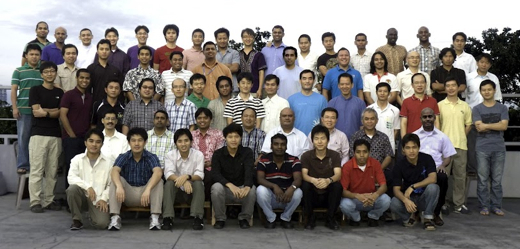
This diversity of cultures means a diversity of culinary preferences, diversity in ideas of musicality and the arts, diversity in humour, and certainly a diversity of opinions. One could see this as a situation ripe for conflict, one that pits one province against another. Yet many choose to see it as an enriching experience, to see the multiplicity of backgrounds as an opportunity to learn from each other’s practices.
Although the language of the residence is English, there are many occasions for learning each other’s language. Learning a language is more than the pleasantries that a person can learn. In an attempt to teach a foreigner to understand one’s native language, one can truly learn much about how one’s culture shapes the way we uniquely construct ideas.
“Each culture not only provides us with a new approach to the human, but also opens up new avenues for the understanding of the Gospel and its riches.” (Tan. FABC Papers #108)
At the same time, one realizes how much we have in common here in Asia Pacific. Many Asian languages have, for example, clear but complex systems that express respect for the elderly or those in authority; and a multitude of words to articulate relationships, familial and otherwise. Moreover, Asians being very spiritual people, each Asian language has its own way to relate and connect to the divine. These shared ways of thinking facilitate synergy in common ministries, and enable the Jesuit be sent anywhere without the sense of being totally uprooted from one’s heritage.
A connection beyond social networking
I was able to meet a good number of my international Jesuit friends through the biennial SBC Conferences. It was providential for me to be able to participate in the Chiang Mai conference on leadership and to organize the Klaten conference on Christian-Muslim relations.
Some cynics view the SBC Conferences as ‘tourism’. I don’t deny that the conferences are not all work and that there is some tourism; but what these sceptics miss is that in giving scholastics and brothers opportunities to enjoy each other’s company, the conferences enable the participants to become friends in the Lord. “Jesuit identity is relational; it grows in and through our diversities of culture, nationalities, and languages, enriching and challenging us.” (GC 35, Decree 2, 19) Through the conferences, we celebrate our belonging to one compañía—true friends whose eyes look towards Him who has made us friends.
The friendship did not cease after the conference. Conference participants continue to keep in touch through a variety of social networking sites on the Internet. Requests for prayers from each other, expressions of encouragement for those undergoing difficulty, are but a few examples of online interactions among scholastics and brothers. When tragedy struck Northern Mindanao last December, the communities of scholastics whom I had met via SBC were among those to offer immediate international support to the efforts of Xavier University. The SBC had enlarged my view of the Society.
From our origins
A young Japanese Jesuit once told me that it is a blessing that the Japanese province is an international province—many members come from different countries and he said it must continue to be such. He said that the international character of the province has allowed the province to be respectful of the Japanese culture and at the same time not be afraid of challenging it.
I believe what he is saying is true for many provinces in Asia Pacific. Many of our provinces were founded and nurtured through foreign missionaries, some of whom were martyred for their love for God and the mission He had given them. For many years, in the spirit of mission, Jesuit provinces from Europe and the Americas had sent their young men to Asia to help the mission grow, establishing parishes and institutions, serving as confessors, spiritual directors, becoming agents of social change. Many of these Jesuit missionaries have adopted the local language and customs, have acquired citizenship, and continue to lead edifying lives.
The provinces of Asia Pacific who have received so much from these Jesuit missionaries are now in turn faced with the need to send their own Jesuits to areas where the mission needs them. We now have Indonesians who teach Theology in Manila, Koreans who work for the refugees in Cambodia, Filipinos doing parish ministry in Timor-Leste. This willingness to be sent on mission is not uncharacteristic for the Jesuit Conference of Asia Pacific whose origins are rooted in the generosity of missioning provinces.
“Our vocation is above all a missionary vocation, as it was for Francis Xavier, which has its origins in that ever deeper encounter with Jesus himself in the Spiritual Exercises of Ignatius. This vocation finds its expression in that warm and devoted companionship epitomised by Peter Faber: a companionship with Jesus, with one another and with those whom it is our privilege to serve as we engage in our mission of faithful service to the Church.” (GC 35, Letter to Fr. Peter-Hans Kolvenbach)
Having a universal perspective of the Society is really part of our identity. When we enter the Society of Jesus, we do not commit ourselves to our provinces alone. Rather, we commit ourselves to a friendship with a heritage of availability. To be placed with Him, to be placed wherever there is most need. To be all, for all.
We, the Jesuits of Asia Pacific which is the home of a spiritual people, are now challenged to be available and make the world our home; to learn from the riches of each other’s cultural diversity, and bring us into closer unity for the mission. As we have received much, may we too respond with such generosity.
With these reflections, the formands hope to help deepen the understanding of the dynamics of Jesuit formation, and contribute to the articulation of what it means to be formed as a Jesuit in the Asia Pacific. The six dynamics are interiority, psychosexual and affective integration, conversation, critical thinking, universal perspective and discerned action.
To read the reflection on the dynamic of interiority, click here.
For more information on A Profile of a Formed Jesuit for Asia Pacific, click here.



